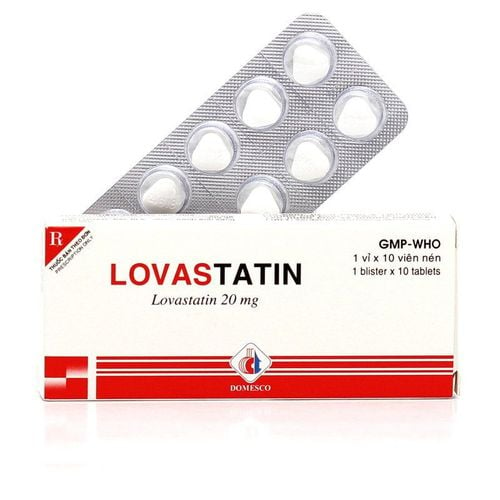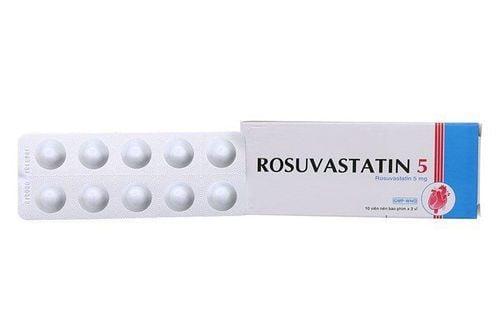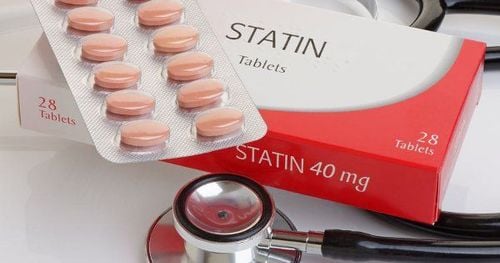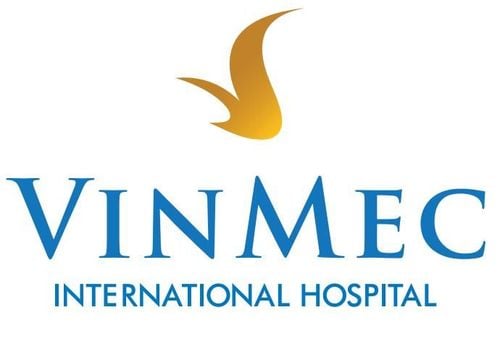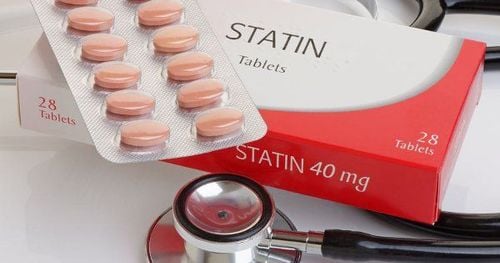This is an automatically translated article.
The article is professionally consulted by Master, Doctor Bui Tien Dat - Emergency Medicine - Cardiology - Emergency Resuscitation Department - Vinmec Hai Phong International General Hospital. The doctor has more than 12 years of experience in the field of emergency resuscitation - cardiology.1. What do you know about cholesterol in the body?
Cholesterol is a fatty substance found in the cell membranes of all tissues in the body and transported in human plasma. Most cholesterol is synthesized by the liver from saturated fats, a small part of cholesterol is absorbed from foods such as eggs, milk, brain, red meat, fat, animal intestines, shrimp...When the acid substance Free fatty acids absorbed by the liver will be converted to cholesterol, if excess fatty acids are converted to triglycerides.
2. Hypercholesterolemia in the elderly
Hypercholesterolemia in the elderly is characterized by an increase in harmful fat and a decrease in protective body fat. When one of the following substances is not within the normal range, it is called hypercholesterolemia (normal blood cholesterol is less than 5.2mmol/l).Cholesterol consists of HDL-C (high-density cholesterol) and low-density lipoprotein (LDL-C) cholesterol. HDL-C is the good cholesterol that protects the walls of blood vessels. And LDL-C (low-density lipoprotein) in normal human blood is less than 3.4 mmol/l, which is bad cholesterol.
LDL-C is one of the factors that cause atherosclerosis of the artery wall, which will narrow the artery, causing hypertension, stroke, cerebrovascular accident, coronary insufficiency... High cholesterol was diagnosed when the blood lipids exceeded the safe threshold as follows:
Total cholesterol > 6.2 mmol/L LDL-cholesterol > 4.1 mmol/L Triglyceride > 2.3 mmol/L HDL- cholesterol <1 mmol/L When blood triglycerides above 2.3 mmol/l are called high triglycerides. When both cholesterol and triglycerides are increased, it is called mixed hyperlipidemia.
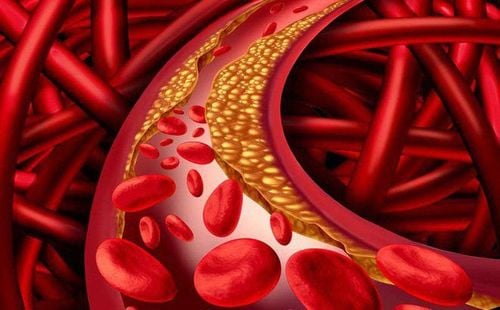
3. Causes of hypercholesterolemia in the elderly
The most common cause of hypercholesterolemia in the elderly is due to an unreasonable diet such as: eating a lot of animal fat, animal organs, eggs (especially egg yolks), whole milk, butter, meat red, animal heart... in daily meals.Obese people are the main subjects of diseases, in addition to some cases due to genetics, some diseases of metabolic disorders such as diabetes mellitus. The most common increase in triglycerides is due to excessive alcohol consumption, obesity, genetics, inactivity or metabolic gene disorder...
People who are sedentary are also at risk of hyperlipidemia. Normally, physical activity: regularly 30 minutes a day helps to reduce "bad" cholesterol and increase "good" cholesterol.
4. Many dangerous complications due to high cholesterol in the elderly
High cholesterol is a disease that does not cause death in a short time, however, its complications are very dangerous. When the amount of cholesterol in the blood is too high, it is very dangerous because it easily leads to narrowing of the arteries, making it harder for blood to pass and reducing blood flow to body tissues including the heart.If not treated, in the long run can lead to many complications such as: fat closes in the blood vessels to form an atherosclerotic plaque... easily leading to blood vessel blockage causing stroke. In particular, people with high blood cholesterol, the condition of blood vessels is blocked, narrower blood vessels more.
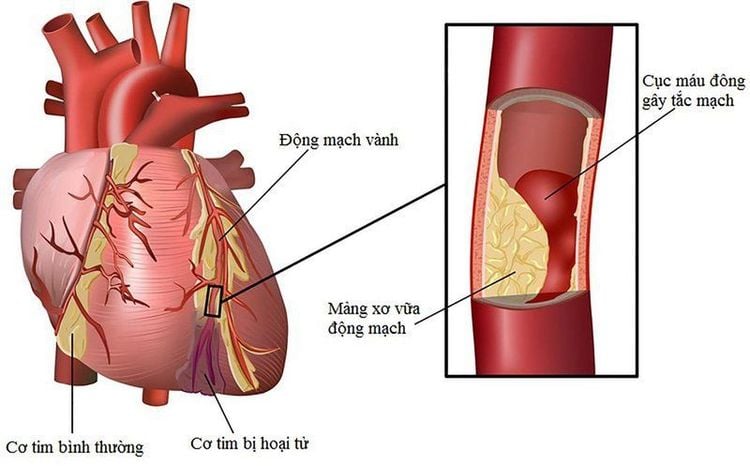
5. Treatment of hypercholesterolemia in the elderly
The most effective way to treat hypercholesterolemia in the elderly is to improve the high blood fat by the patient's diet and lifestyle. Patients should have their blood lipids checked every 3-6 months or as directed by their doctor.Maintain a stable weight, if you are overweight, you must actively lose weight with a moderate diet and exercise. Increase exercise or play gentle sports such as walking, badminton... If you have actively restrained and exercised but your blood fat is still high, the patient needs to take more blood lipid-lowering drugs. .
The duration of taking blood lipid-lowering drugs can last from a few months to several years or a lifetime, depending on the medical condition as prescribed by the doctor. Patients must take the medicine regularly, do not quit halfway.
For patients with cardiovascular disease, chronic kidney disease or diabetes, it is necessary to take the drug as directed by the doctor to maintain the blood fat at an optimal level to prevent stroke and myocardial infarction. Patients should choose a favorite sport suitable for their health to practice such as walking, badminton, table tennis, swimming, cycling, gymnastics, yoga.
6. Does nutrition affect cholesterol elevation in the elderly?
Diet plays a central role in the treatment of hypercholesterolemia in the elderly to prevent atherosclerosis and coronary artery disease.6.1 General rule Reduce energy to less than 1800Kcal Limit cereal intake Limit sugary foods, sweets to less than 20g/day Limit sweet fruits and vegetables Increase foods high in antioxidants (eat) lots of green vegetables 400-500 g/day) Use vegetable oil: sesame oil, soybean oil... (20g/day) Use soy sauce, fish sauce as usual if you don't have high blood pressure 6.2 Foods to eat eat to prevent high blood fat Eat a lot of fresh vegetables and low-sweet ripe fruits (about 500g per day), with a normal way of eating it is better than just squeezing to drink. Eat more garlic if you can. You should eat fish and beans to replace meat: 3 days a week you should eat fish and 1 day eat beans (tofu, chickpeas, green beans, black beans... instead of meat). Eating meat should only choose lean meats without fat, without skin and tendons. Each week should only eat 1-2 chicken or duck eggs. Should use oils such as sesame oil, soybean oil, sunflower oil, olive oil... instead of animal fat in dishes processed by frying. Drink plenty of water daily (from 1.5-2 liters).
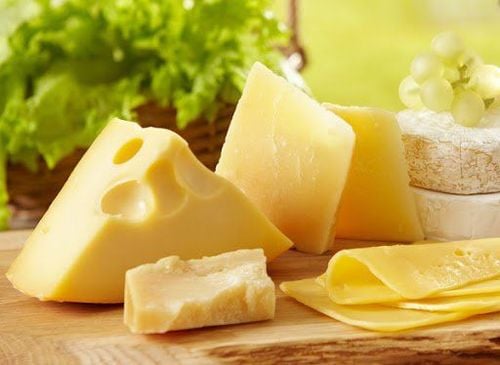
Comprehensive health checkup package Special health checkup package VIP health checkup package Diamond health checkup package.
Please dial HOTLINE for more information or register for an appointment HERE. Download MyVinmec app to make appointments faster and to manage your bookings easily.






